THE “dustbin for Cornwall” - that’s how a resident summed up one of the areas featured in a groundbreaking new report on rural poverty and deprivation in the Duchy.
I was in the clay country village of St Dennis last week for the launch of The Pretty Poverty Report: Cornwall Rurality Matters, a major study from the Diocese of Truro and Plymouth Marjon University which states that poverty in Cornwall is being misrepresented by the Government’s use of the Index of Multiple Deprivation (IMD) which is not giving a true picture of rural life in Cornwall.
It’s leading to poor services and inappropriate policy making meaning that people aren’t getting the comprehensive help and support they really need.
It’s not something that comes as any surprise to those who live in Cornwall – a place that sees families using food banks whose kids have never even been to the seaside a few miles away. Poor transport links, unaffordable housing and a lack of supportive infrastructure are all stark reminders of life for many of those in rural communities.
The Pitch Sports Bar proved an almost ironic place to launch the report – which was attended by Bishop of Truro, the Rt Rev David Williams, Pretty Poverty’s author Professor Tanya Ovenden-Hope, Labour MPs Noah Law and Perran Moon and a number of community leaders and organisations.
Situated in the quiet countryside on the edge of the village, the venue lies within the shadow of the giant white clay pits, which have a unique beauty of their own. However, also looming over the bar is the Cornwall Energy Recovery Centre – the county’s industrial incinerator – which is universally loathed in the area.
It is one of many developments which locals say they didn’t ask for, didn’t want and have been dumped on them - hence the “dustbin for Cornwall” comment. It’s apparent that people who live in St Dennis, one of six areas featured in the report, feel forgotten, let down and angry.
The Bishop of Truro said: “The report looks at six parts of Cornwall which contain some vulnerable deprivation within them – it asks how to do you access healthcare, what are the aspirations of your local school, what’s your housing like to move slightly away from the national markers of deprivation and poverty and ask what it really looks like in rural Cornwall.
Bishop of Truro the Rt Rev David Williams speaks about his involvement with the Pfretty Poverty report into Cornwall's rural deprivation
“There is an irony in the title ‘pretty poverty’ – we are in the most beautiful part of the world but what does it feel like to live in some of the most rural communities in Cornwall? We are hoping that it won’t stay as just a set of words which started in Cornwall and will start a national debate on the issues raised.”
St Dennis isn’t a dead village by any stretch of the imagination. There’s a strong sense of community largely thanks to ClayTAWC, an incredible facility in the middle of the village. It opened following a parish appraisal in the 2000s found there was a high demand for a venue to help local people on a low incomes receive training, education and additional skills to find employment.
It has expanded to provide a vast range of services including both qualification and non-qualification courses in subjects such as English and IT, social groups, recreational activities such as art classes, affordable hired spaces for organisations, children’s workshops, charity-based coffee mornings and more.
However, St Dennis isn’t the once thriving hub it was. Loads of businesses have closed, including the Boscawen Hotel pub, and there’s basically only a Spar shop now for people to buy their basics. Public transport links aren’t great, there isn’t much for kids to do which leads to its own problems and locals feel they are the testing ground for all manner of projects, including solar and lithium developments.
The first person I bumped into while walking around the slightly dangerous pavement-less street in the centre of the village was former parish clerk Jackie Salmon, 85, who has lived in St Dennis for almost 50 years. “It wasn’t like this at all when I came here,” she said. “There were a lot more shops – we had at least 20 shops and there were more than that before I came. There were over 30 – there was even a cinema.
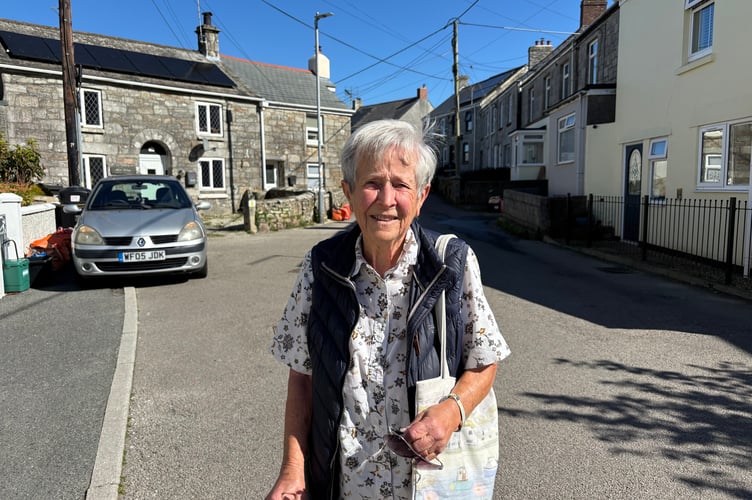
“The people in St Dennis are lovely but the facilities have got smaller and smaller and smaller. Now we’re the dustbin for Cornwall. We’ve got the lithium people starting, we’ve got the incinerator, we’ve got solar panels and on the other side of the road, on our border, there are plans for 21 acres of electricity storage. So we are surrounded.
“I’ve said it for a long time – we are now the dustbin for Cornwall. Everything that looks not very good and there’s an argument about … ‘bung it in St Dennis, they don’t care’. I don’t know why it’s happened because at one stage it was the biggest village in Cornwall.
“It’s definitely noticeable that there’s deprivation here. The roads are dreadful, there’s no way to clean out the gutters of the little pavement we’ve got, we only get a bus every two hours now and those buses are usually full of people. St Dennis needs lots of cash injection.”
Alison Griffin lives in the centre of the village and sits on St Dennis Parish Council. She said: “This parish and St Enoder are producing 40 per cent of Cornwall’s electricity by ourselves. We don’t need any more. What we do need are decent affordable homes for locals. The school doesn’t get any extra money and it’s struggling.
“This area is treated like a dumping ground. We’re the lowest priority when it comes to things like roads. If you’re in the ‘prettier’ areas of Cornwall, you get your potholes done and your roads surfaced quicker. There is a very high proportion of working class Cornish people living here and wages are really low. People are struggling.
“The majority of people work and they suffer by not having enough money and not being able to get on the housing ladder. There are a lot of people working and having to claim top-up benefits. The people using the food bank over the road are working people.”
She added: “There needs to be stuff for the kids to do. Anti-social behaviour can be difficult. They’re not bad kids, they’re just bored. ClayTAWC is amazing though – all summer they had free events and classes for the kids.”
The last time I walked around St Dennis I was taken with a grocery store which sold all daily needs alongside quirky antiques and ornaments. It’s now gone.
I spoke to resident of over 40 years Mandy Clarkson outside the empty premises. She said: “There used to be two bakers, a greengrocers, a post office – you could get anything, there was even dry cleaning. Now you’ve just got one shop. So many businesses are closing down. If the young ones can’t drive and are relying on buses, they’ve been cut, so no one’s got a fair chance.
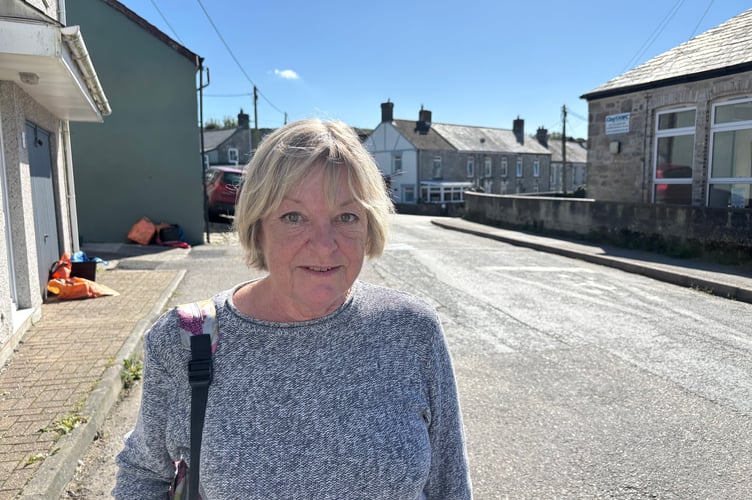
“A lot of houses are now going to be built and I don’t know where they’re going to fit the children. Life would be a lot worse if it wasn’t for ClayTAWC, which has been a lifeline for some people.”
She said all the development that has happened or will happen in and around the village, which started with the incinerator, “doesn’t encourage businesses to come here and it really doesn’t encourage people to come and live here”.
Mandy added: “We need easier transport access that’s a lot cheaper. We need better infrastructure – the school needs to be made bigger. There’s only one doctor’s surgery, which can’t cope with the amount of people in the village now. There’s one park for hundreds of children, which is no good. They can’t play on the downs like they used to because of all of the work with the lithium. There’s nothing for them to do.”
Trerice Solar Farm Limited – an offshoot of Norwegian-owned Statkraft – applied to Cornwall Council to build a 32MW solar farm and 45MW Battery Energy Storage System (BESS) on 18 fields adjacent to Trerice Manor Farm in the village. The application was refused by a planning committee in July, but locals fear the company may appeal.
St Dennis resident Julie Floyd’s comments at the meeting back up what residents said last week: “The hugely controversial decision to site the incinerator here was divisive, yet the clear message unanimously received was that we were being dumped on, engendering the feeling that we don’t matter. Our landscape proudly bears the scars of our clay mining heritage that provided jobs and housing for our forefathers.
“The industry generated great wealth for our county, far in excess of the more romanticised tin industry. Yet it feels like we are Cornwall’s backyard and all the ugly bits end up here. Being one of the most deprived parts of the county, this is just one sacrifice too many.”
While wandering around St Dennis I also bumped into the area’s Labour MP Noah Law fresh from the Pretty Poverty launch.
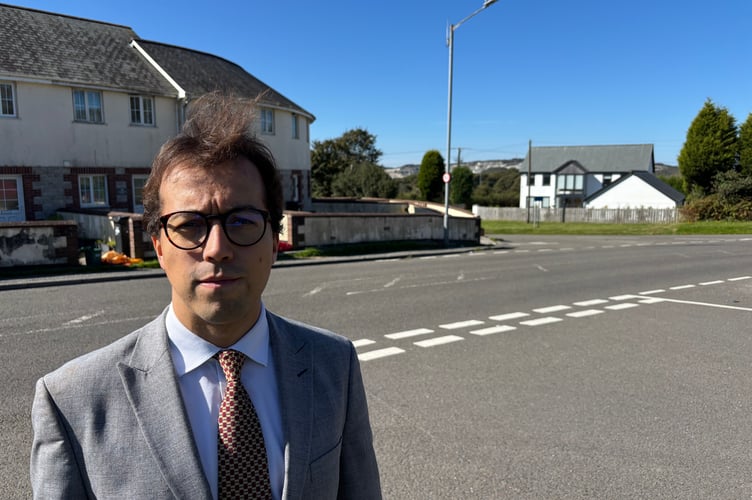
He said: “I think it’s a landmark report in a lot of ways because, although there are significant signs of progress on things like fair funding, there are still a lot of missing pieces of the picture that we’ve got to address like transport connectivity and the future of economic growth funding in Cornwall. What this report does is speak very clearly to the way that some of the metrics that we’ve used, like IMD, haven’t really captured the challenges we face here in Cornwall.
“We’re on a peninsula, we are quite isolated from the rest of the UK and a lot of that deprivation we know all too well is masked by the increasingly wealthy, either second home owners or newcomers, perhaps retirees, that place a lot of strain on the local economy without us really delivering for local people.”

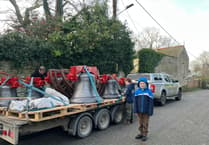

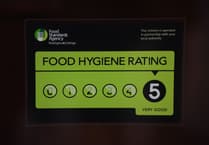

Comments
This article has no comments yet. Be the first to leave a comment.